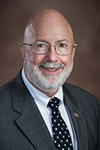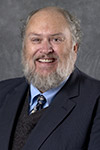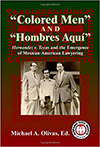Speaker to examine impact of Jackson County civil rights case
When people think about famous U.S. Supreme Court civil rights cases, discussion often centers on Brown v. Board of Education, but the University of Houston-Victoria Provost’s Lecture Series on April 4 will focus closer to home.
Another case decided in 1954 just a few days before Brown originated in the Jackson County Courthouse and impacted criminal courts across the nation by requiring jury selection to include Mexican Americans, who made up 15 percent of the county’s population at the time.
“From Edna to the U.S. Supreme Court – ‘Colored Men’ and ‘Hombres Aqui’: Hernández v. Texas” will be presented at noon in the UHV University North Multi-Purpose Room, 3007 N. Ben Wilson St. It is free and open to the public.
“Civil rights is an important topic that has played a major role in the development of all corners of our nation, including the Crossroads,” said David Cockrum, UHV interim provost and vice president for academic affairs. “Whether it’s in the classroom or the courtroom, everyone has the right to equal and fair treatment, and it’s important to look back at the progress we’ve made in the past so we can continue to move in the right direction.”
Michael A. Olivas, the William B. Bates Distinguished Chair in Law at the UH Law Center and interim president at UH-Downtown, will give a presentation about the importance of the case and how it impacted both the Crossroads and the nation. He has written 15 books, including “Hombres Aqui: Hernández v. Texas and the Emergence of Mexican American Lawyering in Texas.”
“Hernández v. Texas was a landmark case in so many ways,” Olivas said. “It was the first Mexican American civil rights case presented and decided by the U.S. Supreme Court, and it was the first to be argued by Mexican American lawyers. It was a companion case to Brown v. Board of Education, and unfortunately, it’s often overshadowed by Brown, even though its impact is just as important.”
The case sprang from the murder trial of Pete Hernández, a 21-year-old Mexican American cotton picker accused in 1951 of shooting a man in an Edna bar. Before the trial began, Hernández’s lawyers claimed the trial would be unfair because Mexican Americans were excluded from the jury.
The lawyers’ objections were dismissed with the statement that the only race difference the court recognized was black or white. Since Hernández was not black, an all-white jury would be considered a jury of his peers. That argument was proved false by a simple bathroom sign, Olivas said.
“When the court took a recess, the lawyers were told their bathroom was downstairs,” he said. “In the basement of the Jackson County courthouse was a bathroom with a sign that designated it for ‘colored men’ and ‘hombres aqui.’ In the same courthouse where they were told Mexican Americans were white, there was a segregated bathroom with a sign in Spanish that clearly implied they were not equal to whites.”
Even after the lawyers took pictures of the sign and presented it as evidence of an unfair jury selection, their objections were overruled, and Hernández was tried and convicted of murder. The lawyers took the case to the U.S. Supreme Court, which overturned the conviction in a 9-0 decision. Hernández was retried with a new jury that included two Mexican American members and was found guilty.
“I hope people who do not know much about the case will come,” Olivas said. “It is such an important case that should be more widely known. This was one of the first times Mexican Americans took their fate into their own hands and challenged the legal system.”
The Provost’s Lecture Series began as part of the university’s 40th anniversary celebration in 2013 as a way to bring more opportunities for scholarly discussion to UHV.
The University of Houston-Victoria, located in the heart of the Coastal Bend region since 1973 in Victoria, Texas, offers courses leading to more than 80 academic programs in the schools of Arts & Sciences; Business Administration; and Education, Health Professions & Human Development. UHV provides face-to-face classes at its Victoria campus, as well as an instructional site in Katy, Texas, and online classes that students can take from anywhere. UHV supports the American Association of State Colleges and Universities Opportunities for All initiative to increase awareness about state colleges and universities and the important role they have in providing a high-quality and accessible education to an increasingly diverse student population, as well as contributing to regional and state economic development.
Lauren Hightower-Emerson
361-570-4342







